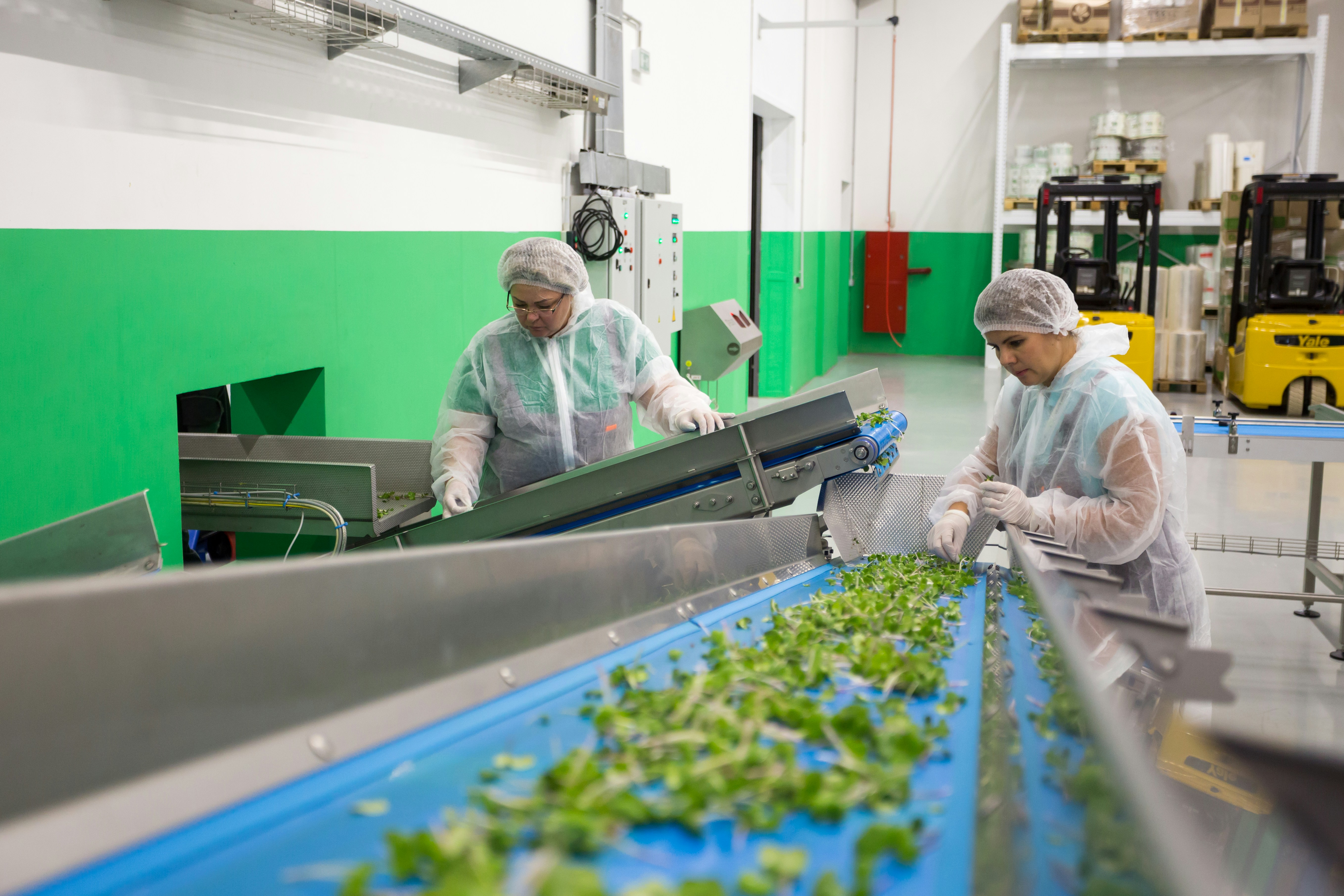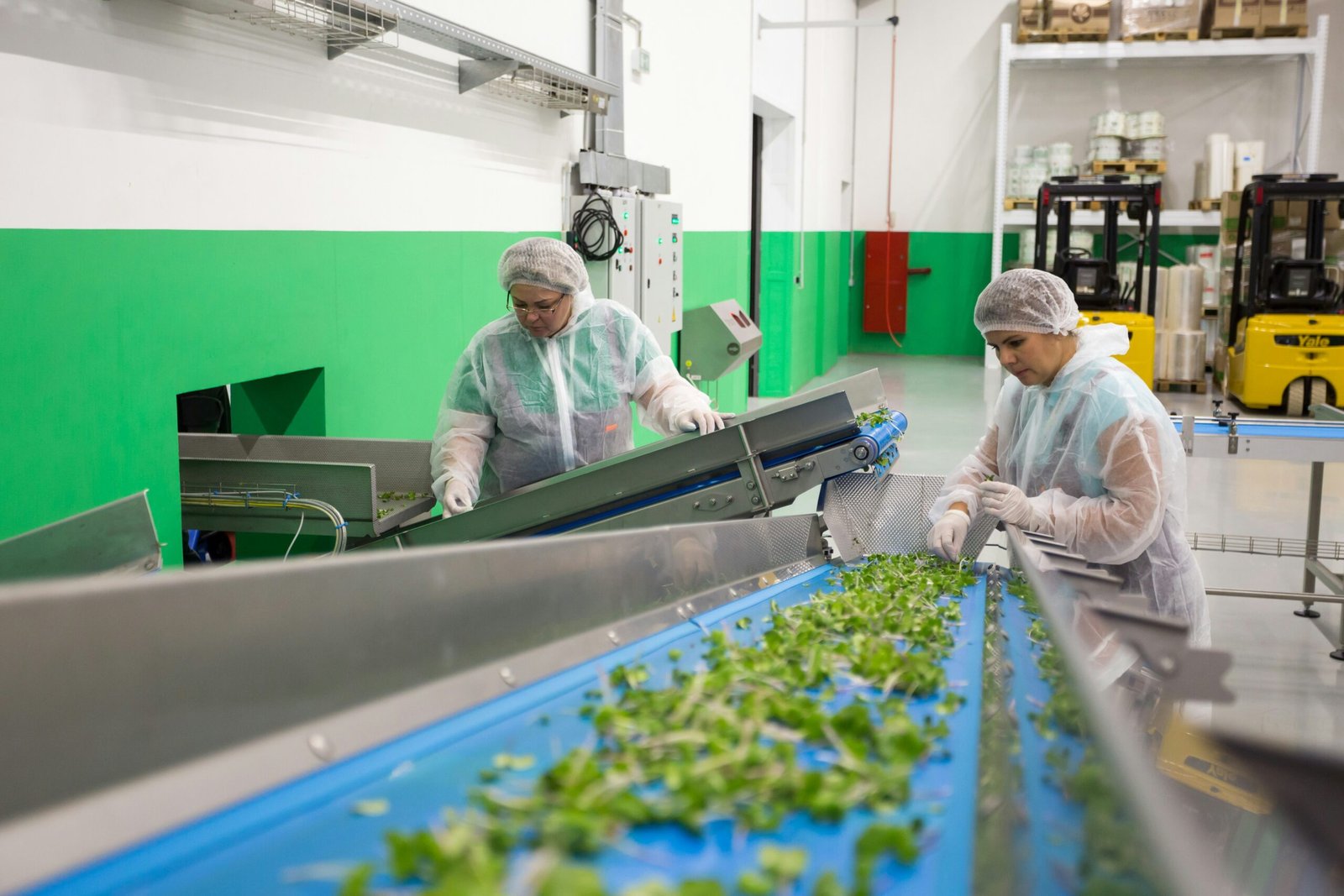
Introduction to AI-Driven Food Quality Control
AI-driven food quality control systems represent a significant evolution in the food industry, utilizing advanced technologies to enhance food safety and compliance with regulatory standards. These systems are designed to monitor, analyze, and manage food quality throughout the production process. By integrating artificial intelligence (AI), particularly machine learning and data analysis, food manufacturers can ensure a higher level of food safety and quality assurance.
The primary functionality of AI-driven systems involves collecting vast amounts of data from various stages of food production. This includes information on raw materials, processing conditions, and storage environments. AI algorithms analyze this data to detect anomalies, predict potential issues, and optimize operational procedures, all of which contribute to maintaining high-quality standards. This proactive approach not only addresses existing problems but also anticipates future challenges, resulting in a more resilient food production process.
Food safety is paramount, as it directly impacts public health and consumer trust. With increasing global trade and heightened consumer awareness, food manufacturers are under tremendous pressure to comply with strict health regulations. The traditional methods of quality control, often labor-intensive and reactive, are no longer sufficient to meet these demands. AI-driven solutions provide an innovative pathway to streamline processes, reduce human error, and ensure consistent quality across food products.
Incorporating AI technologies into food quality control also facilitates real-time monitoring, enabling companies to make informed decisions swiftly. This capability is crucial in identifying potential hazards, implementing corrective actions, and ensuring traceability in the event of foodborne illness outbreaks. As the food industry continues to evolve, the integration of AI will play a pivotal role in fostering a safer food environment for consumers and reinforcing the industry’s commitment to quality.
Benefits of Implementing AI in Food Quality Control
The integration of artificial intelligence (AI) into food quality control processes offers numerous advantages that significantly enhance the overall efficiency and effectiveness of food safety management. One of the primary benefits is the enhanced accuracy in detecting contaminants and quality issues. Traditional inspection methods often rely heavily on visual inspections and human judgment, which can lead to oversights. AI-driven systems utilize advanced algorithms and machine learning techniques to analyze data and identify potential threats with greater precision, ensuring higher standards of food quality.
Another vital advantage of AI in food quality control is its real-time monitoring capabilities. AI systems can continuously assess food products as they move through the supply chain, instantaneously identifying any deviations from predetermined quality standards. This real-time feedback enables companies to address any issues promptly, minimizing the potential for widespread contamination and maintaining regulatory compliance.
The reduction of human error is also a significant benefit of implementing AI. Human inspectors may inadvertently miss critical signs of spoilage or contamination due to fatigue or lack of experience. AI-powered solutions, however, operate consistently and will not falter under pressure, offering a reliable alternative to manual inspections that ensure a higher level of food safety.
From a financial perspective, investing in AI systems can lead to substantial cost savings for businesses. Although initial implementation may carry some expenses, the long-term benefits include reduced wastage, lower recall costs, and improved operational efficiency. Companies can reallocate resources to areas that enhance production and innovation, ultimately leading to heightened profitability.
Moreover, AI-driven food quality control systems foster improved consumer trust in food safety. As customers become increasingly aware of food safety issues, knowing that rigorous AI monitoring is in place can serve as a strong assurance of quality. Case studies of organizations utilizing AI solutions have shown a marked improvement in consumer confidence and brand reputation, demonstrating the transformative impact of AI in ensuring safe food for all.
Challenges and Limitations of AI in Food Quality Monitoring
As the adoption of AI-driven food quality control systems becomes more prevalent, it is essential to recognize the challenges and limitations that companies may encounter during implementation. One of the foremost concerns is the high initial cost associated with integrating these advanced technologies into existing systems. Investment in AI infrastructure and software can be substantial, requiring not only resources for equipment and software licenses, but also for the necessary updates and maintenance that come with such sophisticated tools. For many organizations, particularly small to medium-sized enterprises, this financial barrier may restrict the potential benefits of AI-based solutions.
Additionally, the integration of AI in food quality control often necessitates extensive training to build the expertise required for effective utilization. Employees need to develop proficiency in operating AI systems and interpreting the data produced. This need for skilled personnel can lead to an increased workload and potential disruptions in day-to-day operations. Furthermore, the continuous evolution of AI technology means that organizations must stay updated with the latest advancements, which can pose challenges in terms of time and additional training costs.
Data privacy concerns are another significant factor to consider. Given the sensitive nature of food safety and quality data, organizations must implement robust data protection measures to safeguard against unauthorized access and breaches. This aspect not only raises compliance issues but also necessitates ongoing assessments of data security protocols to ensure the integrity of information management systems.
Moreover, the complexity of system maintenance can create further obstacles. AI systems often require regular updates, troubleshooting, and monitoring, which may strain existing personnel or necessitate hiring specialized staff. Thus, while AI-driven technology has the potential to revolutionize food safety, it is crucial for companies to balance the benefits of automation with traditional quality assurance methods to create a comprehensive approach to food safety practices.
The Future of Food Quality Control with AI Technologies
The future of food quality control is poised to undergo significant transformations through the integration of advanced artificial intelligence (AI) technologies. Emerging innovations, such as blockchain and Internet of Things (IoT) devices, play a crucial role in creating a more transparent and efficient food supply chain. Blockchain technology offers a secure ledger for tracking food products from their origin to the consumer, ensuring traceability and verifying quality. This can increase consumer trust and reduce the risk of foodborne illnesses by allowing for rapid response to contamination events.
In parallel, IoT devices are enabling real-time monitoring of food conditions throughout the supply chain. These devices can collect critical data on temperature, humidity, and other environmental factors essential for maintaining food quality. When combined with AI algorithms, the data collected can become a powerful tool for predictive analytics, allowing manufacturers and retailers to anticipate potential issues before they escalate. By analyzing trends and patterns in the data, organizations can make informed decisions on production, storage, and transportation, ultimately improving food safety standards.
Furthermore, the ongoing advancements in AI capabilities are expanding the horizons for food quality management. Machine learning models can be trained to identify anomalies or deviations in food quality, enabling quicker interventions. As AI continues to evolve, it is likely to integrate even more sophisticated analytics and processing techniques, enhancing the overall efficacy of food safety measures. Given these promising prospects, investing in AI technologies is essential to address the challenges faced by the food industry today.
In conclusion, the integration of AI-driven technologies such as blockchain, IoT, and predictive analytics will revolutionize food quality control systems, laying the groundwork for a safer food industry. Continued research and investment in these innovations are vital for improving food safety and reliability in the years to come.










